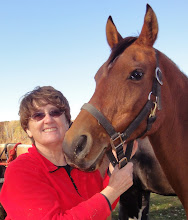“Nothing ever gave me that intense kind of feeling like when I was driving around, and I would be thinking about raping someone, maybe following somebody,” he said. “I had a physical reaction. I would be shaking, physically shaking, like teeth would chatter. I couldn't stop. I never had that kind of physical reaction to anything else. I would also get butterflies. I can relate that to sports events, before a big game or something.”
These are the words of Hank Ames, a graduate of an elite liberal arts college where he was a lettered athlete in tennis and golf. Married and a small business owner, Hank was convicted of eight rapes of strangers and served seventeen years in prison. I interviewed him when he was in prison.
Hank explained that he didn’t get an erection before games but he did when he was driving around looking for a woman to rape.
His victims had to be women he didn’t know. “The less I knew about somebody the easier it would be to victimize them,” he said. “I couldn't hurt somebody I know or that I had any kind of relationship with. I don't mean relationship in terms of physical relationship, but just an acquaintance, anybody that I had any kind of contact with. I couldn't do that because it was personal then. It was like for me [He thought for about five seconds.], rape was impersonal.”
Not only is rape impersonal, but Hank decided who the women were and what the rape would mean to them. “If I take the right person, it's not going to make a difference anyway,” he said. “The women I was raping were [He didn’t finish the sentence.].
"They'd been in bars looking for guys anyway. My set up was that they'd been out in bars or loose sexually kinds of people. So they had it coming, or it didn't matter to them. This wouldn't be a big, big thing to happen to them.”
After Hank said this, I was speechless for 20 seconds. When I was able to speak, I asked him how he knew the women were loose. He said, “Well, I didn't actually know that. I knew that because that's the kind of people that were out at that time of night.” I asked him what time of night that would be.
“This is another thing that doesn't make sense,” he said, “because there were all kinds of times that I was out. Generally it would be late, like midnight, one o'clock, two o'clock in the morning, that kind of thing, but I was out in the winter time sometimes after it got dark, or not right after it got dark but maybe at seven-thirty or eight o'clock.”
As Hank spoke I noticed how small he looked, not my idea of a rapist at all, but hunched, wrinkled forehead, pushing himself to explain how he thought about his rapes. I tried not to imagine him following me home, grabbing me in my garage, and throwing me to the floor.
After dark, I don’t turn into my driveway but go around the block if there is a car in back of me. I check the rearview mirror for headlights.
Hank doesn’t hold women responsible for their own rapes. “Most women would think that they have some responsibility,” Hank said, “or there's something that they could have done differently to change events or that there was something about them that made them attractive as victims. From my experience, that's not true. The only attractive quality about victims is that they're vulnerable at that time because of the situation.
"It didn't have anything to do with how they looked or how they dressed or [Hank paused for several seconds.] or how much money they made or anything. It is nothing about them. I've read things or heard things, victims talking about it. T
"They can remember the way the guy smelled or the way he sounded or what he looked like or all those kind of things. I can't remember anything about any of the victims. If any one of those victims walked into the room I wouldn't know who they were.”
Subscribe to:
Post Comments (Atom)
The blog is for witty people who want to build community. In this world that seems to be so full of witless efforts to self-aggrandize, I want to promote the simple idea of human connection.

No comments:
Post a Comment